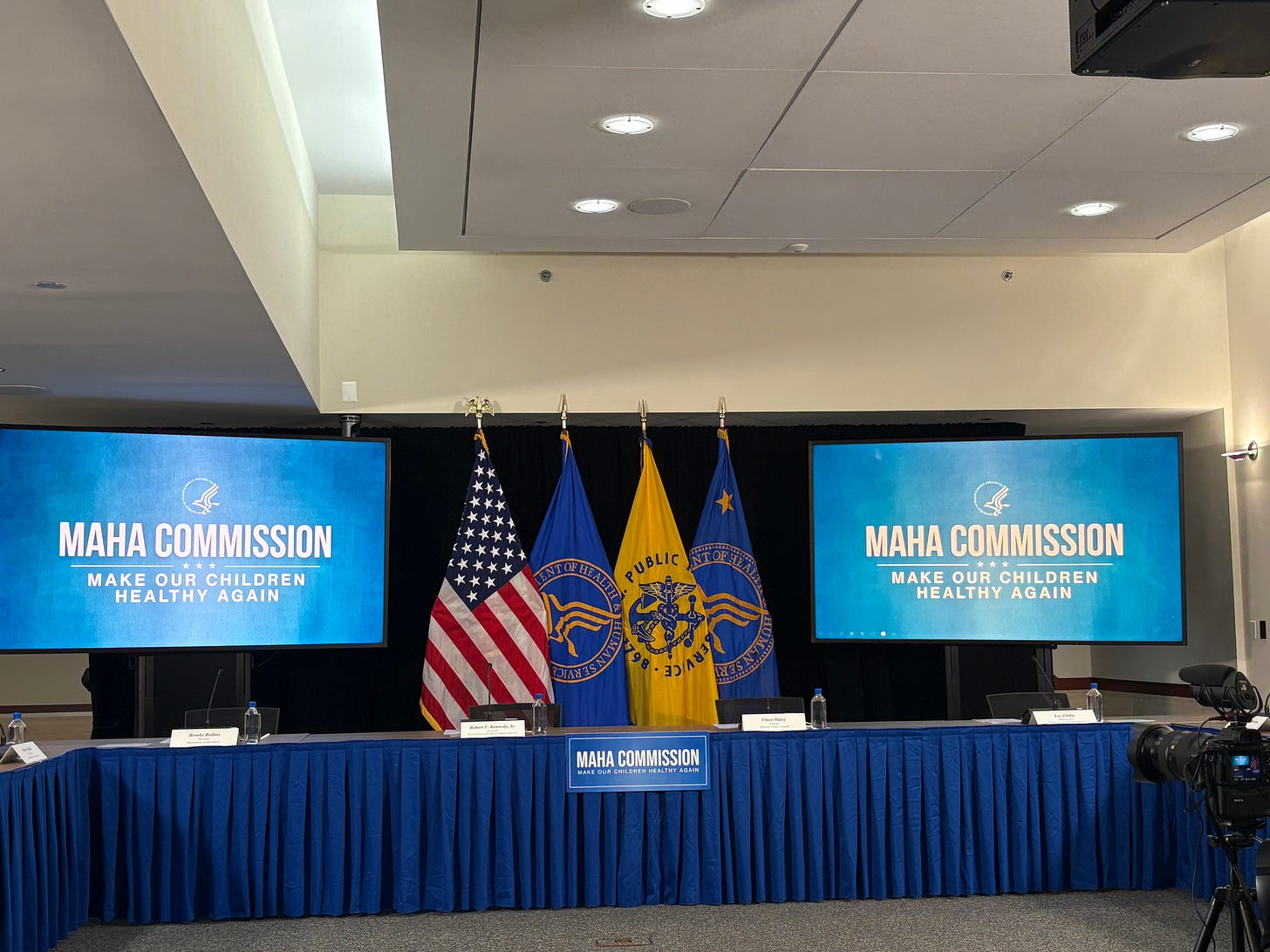MAHA Just Dropped Their 128-Point Health Strategy (And It's Not Exactly What Anyone Expected)
My take on the good, the bad & the 'to be researched'
Yesterday, I sat in a makeshift press room on Independence Avenue packed to the brim as RFK Jr. and the MAHA Commission released their strategy report to "Make Our Children Healthy Again"
Not the assessment from May that identified the problems to be solved.
But the “MAHA Strategy Report”
Their actual game plan.
120+ initiatives to "reverse the failed policies that fueled America's childhood chronic disease epidemic."
NIH Director, Dr. Jay Bhattacharya, summed it up nicely calling the report an attempt at addressing ‘the nightmare scenario' of the state of today's children’s health - a reality where our kids expect a shorter life span and a sicker existence than their parents and grandparents.
After reading through the whole thing (which I thoroughly recommend), I'll be honest: this isn't the regulatory hammer most people expected.
It's something else entirely.
So What Is It?
The MAHA Report (released in May 2025) mentioned ultra-processed foods more than 40 times.
The MAHA Strategy? Once.
In contrast, the …




